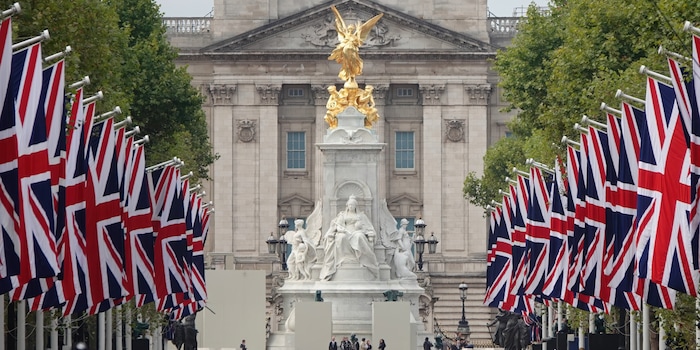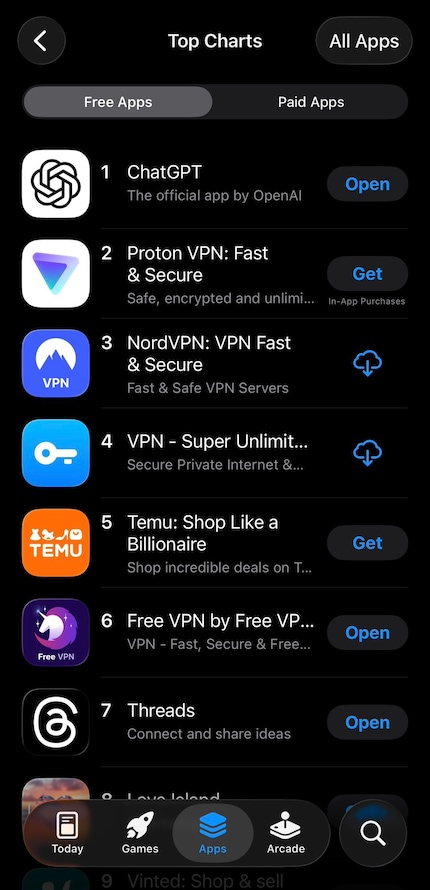
Online Safety Act: Child Protection Act triggers British VPN run
Following the introduction of the Online Safety Act in the UK, VPN downloads are soaring, porn sites are losing users - and the dispute over online freedom is escalating.
On 25 July, the so-called «Online Safety Act» came into force in the United Kingdom. The obligation to identify oneself online was intended to make it more difficult for minors to access adult content. However, the new law initially had a completely different effect: within a few hours, registrations for VPN services skyrocketed. Tens of thousands of Brits downloaded VPN apps onto their phones and searched for VPN services online. In the App Store, four VPN apps were in the top 6 of the app charts. The Swiss supplier Proton VPN even recorded an increase of more than fourteen times.

Source: Tom Warren / X
At the same time, however, the number of visitors to other services - namely porn websites - apparently plummeted by up to 50 per cent. This also appears to be a direct effect of the proof of age requirement. Anyone wishing to view pornographic content in the UK must identify themselves by facial recognition, credit card or ID document.
Within just a few weeks, hundreds of thousands signed a petition calling for the new regulations to be abolished or significantly weakened.

Source: Wikimedia
What's the problem?
The aim of the Online Safety Act sounds plausible at first: children and young people should be effectively protected from content that is harmful to minors. Websites with pornographic or otherwise potentially harmful content must carry out strict age checks, otherwise there is a risk of fines or blocking. The regulatory authority Ofcom monitors compliance.
Critics, however, warn of the side effects. They criticise the fact that users disclose personal data during identity checks - with the risks of data leaks and possible surveillance. This law also opens the door to arbitrary network blocking under the pretext of security. Financially less powerful companies are also exposed to high financial and bureaucratic pressure if they want to comply with the new law. This could lead to a restriction of freedom of expression and information.
Is a VPN ban coming?
The explosion in demand for VPN services therefore seems to be no coincidence. A VPN can be used to conceal your own location so that websites can no longer recognise the (in this case British) origin of a visitor. This allows users to bypass the age check - at least technically.
The authorities have already stated that the «promotion or active advertising» of such methods is illegal. Critical voices now fear a VPN ban. However, there are no concrete plans for this, but «is monitoring developments». Concrete consequences have not yet been threatened.
I've been tinkering with digital networks ever since I found out how to activate both telephone channels on the ISDN card for greater bandwidth. As for the analogue variety, I've been doing that since I learned to talk. Though Winterthur is my adoptive home city, my heart still bleeds red and blue.
From the latest iPhone to the return of 80s fashion. The editorial team will help you make sense of it all.
Show all